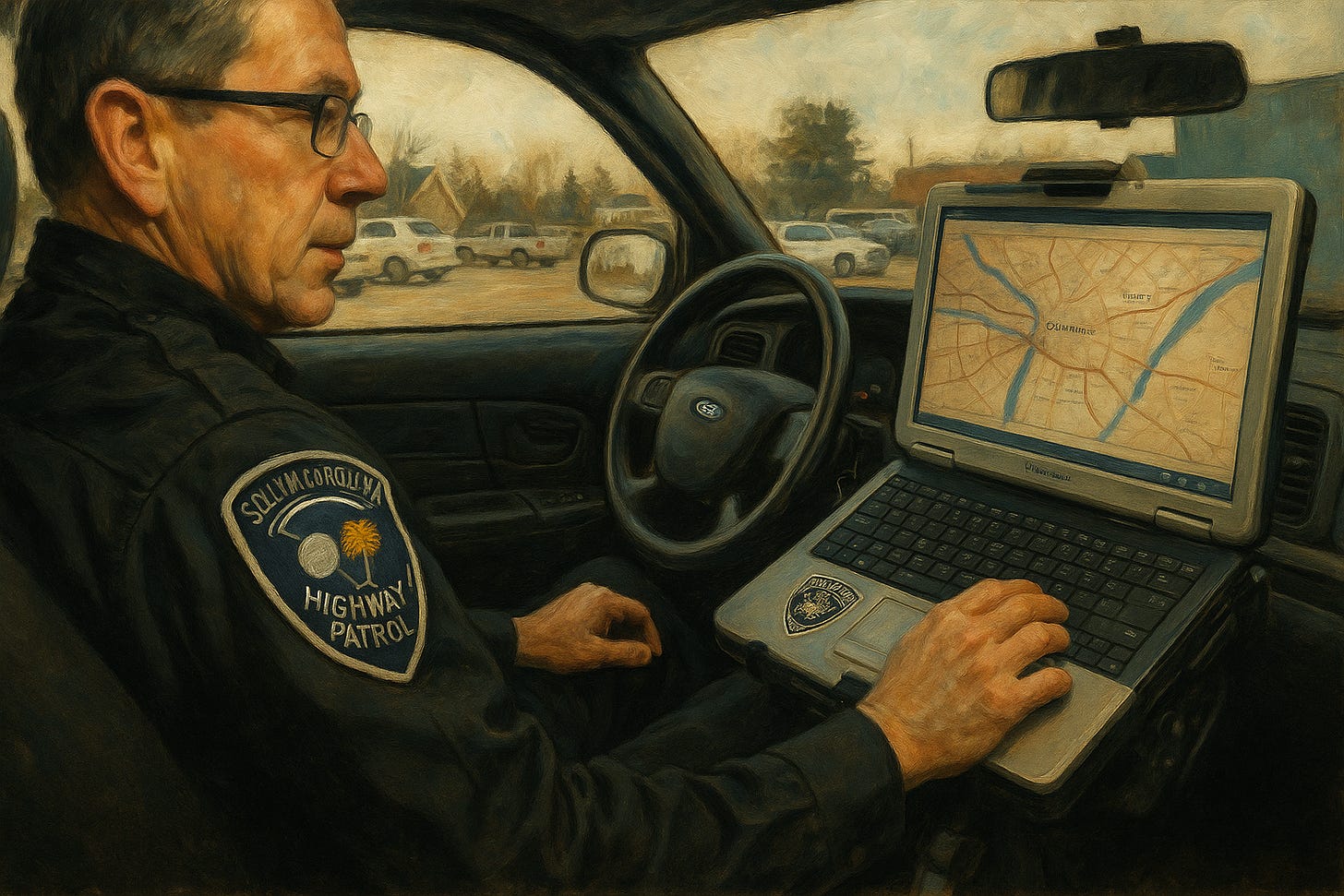Put It Down - Or Park It: New South Carolina Law Requires Drivers Go Hands-Free This Summer
Some Say Its A Long-Overdue Step In The Right Direction In A State Renowned For Its Terrible Drivers. Others Say Its Just Another Example of The Feds Bullying A State
South Carolina drivers, start practicing now: come September 1st, it’ll be illegal to hold your phone while operating a vehicle, or ever set it on your lap. That’s the core of the new “Hands-Free and Distracted Driving Act,” signed into law by Governor Henry McMaster earlier this month. The law makes South Carolina the 34th state to crack down on handheld device use behind the wheel, joining a national movement to reduce distracted driving—but not without raising a few eyebrows.
Here’s what’s changing: Under the new law, it will be illegal to physically hold a mobile phone while driving. That includes texting, scrolling, watching videos, or even propping the phone on your lap. The only legal way to interact with your device will be through hands-free technology like Bluetooth or voice commands. The law allows for quick taps to start or end a call or navigation, but otherwise, your hands should stay on the wheel. There’s a 180-day grace period starting September 1 where violators will only get warnings—but after that, expect a $100 fine for a first offense, then higher fines plus two points off your license for repeat violations.
Why the sudden urgency? Simple: Washington threatened to cut our allowance. The Federal Motor Carrier Safety Administration had warned that if South Carolina didn’t pass a hands-free law by July 2025, we’d lose up to 4% of our federal highway funding—roughly $80 million a year. That percentage would’ve gone up each year until we complied. It wasn’t just a nudge; it was a fiscal bitch-slap. For a state already wrangling potholes and infrastructure shortfalls, that kind of cut wasn’t a risk lawmakers wanted to take. So the legislature did what many others have done: fell in line to keep the cash flowing.
Still, it’s worth noting that the debate wasn’t just about road safety—it was also about political optics. On one hand, distracted driving is a real and deadly issue, and there’s solid evidence that hands-free laws can reduce accidents. On the other, it’s hard not to notice how fast and uncharacteristically unified lawmakers became when there was money on the line. While something meant to benefit the People of South Carolina would have taken years of committee hearings and amendments, this passed in a flash. Safety may be the stated goal, we see what gets the legislatures motor running.
And here’s where things get a little ironic: the law applies to everyone driving on South Carolina roads—except for when it doesn’t. Police, as an example, are exempt. While you might get ticketed for glancing down at your GPS, law enforcement officers will still be operating cruisers outfitted with mounted laptops, cameras, and radio equipment. No one’s saying they don’t need those tools, but it raises a fair question: why is it dangerous for a civilian to have a phone on their lap, but acceptable for an officer to navigate multiple lanes of traffic using several electronic systems at 65 miles per hour?
That’s not the only head-scratcher. There’s also an exception for drivers who are “lawfully parked or stopped”—which, on paper, seems like a nice compromise. But what about being stuck at a red light or bumper-to-bumper traffic? According to the law’s language, that’s still considered “operating” the vehicle. While your car is frozen in place for a half-hour on I-26, technically, you could be cited. Meanwhile, the guy in the patrol car that pulled you over ran your license plate on his dash-mounted MacBook.
All things considered, the law is probably a net positive. South Carolina’s roads are among the deadliest in the nation, and distraction is undeniably a factor. A clear, enforceable rule might be exactly what we need to change habits and reduce wrecks. But that doesn’t mean we shouldn’t talk about the way it came about—or the uneven way it will be enforced. Like most legislation, the “Hands-Free Act” is well-intentioned, imperfect, and done behind our backs. Just make sure your Bluetooth is working before September.








